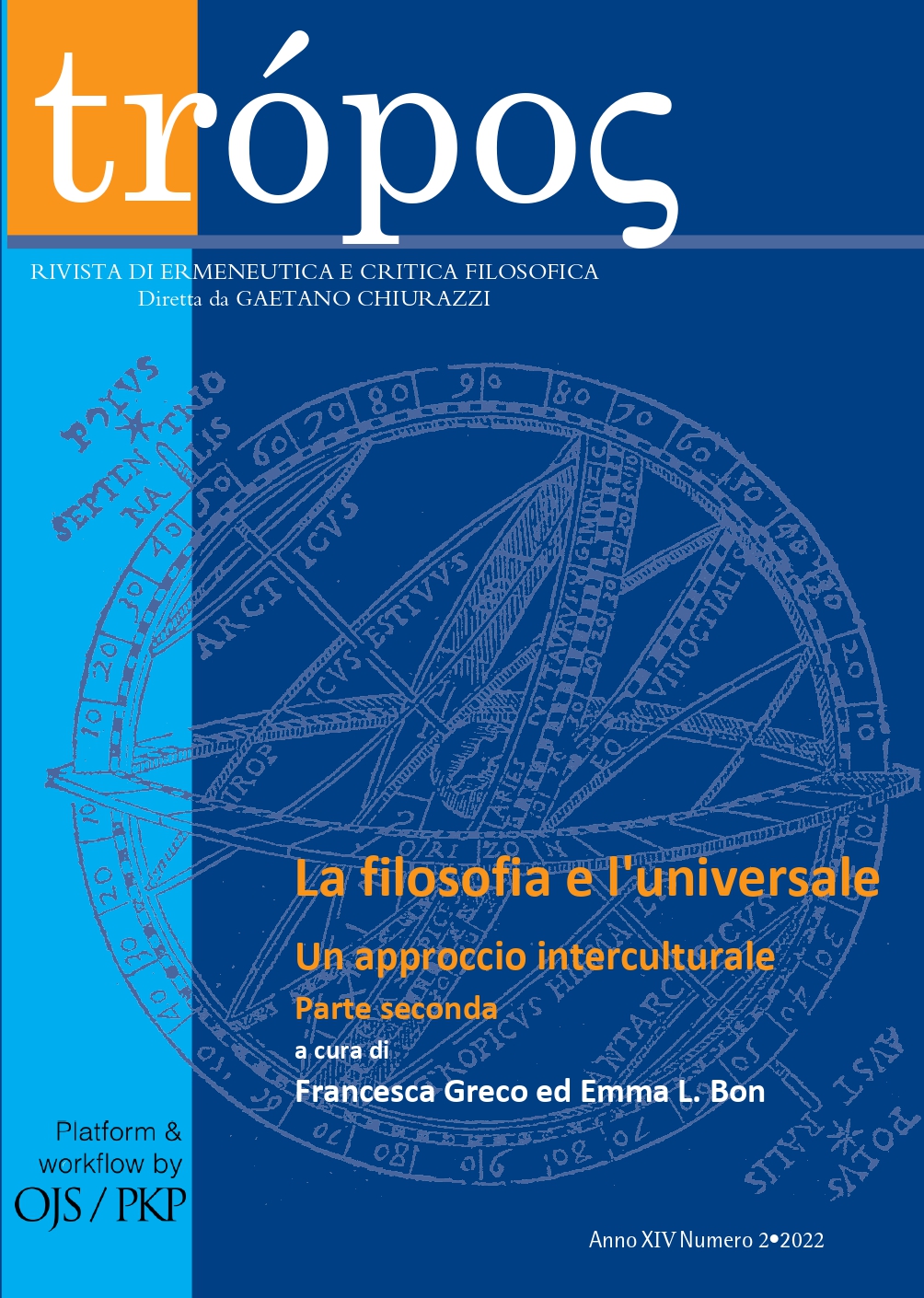Moving through non-essential commonalities
Dialectics as a Method for Intercultural Philosophy
DOI:
https://doi.org/10.13135/2036-542X/8887Parole chiave:
Dialectics, Intercultural Philosophy, Self-relation Dialectics, Other-relation Dialectics, orthafte OrtlösigkeitAbstract
In this article, I attempt to show how, by articulating the dialectics of Hegel, Nāgārjuna and Nishida, one could arrive at a fruitful way of conceiving intercultural philosophy by means of a dialectical method. To articulate the dialectics of those different philosophers in a method of doing philosophy interculturally, I shall also introduce Ram Adhar Mall and his conception of situated unsituatedness (orthafte Ortlösigkeit) into discussion. I believe that Mall’s concept not only provides a foundation for articulating the different dialectics of Hegel, Nāgārjuna and Nishida in a method of doing intercultural philosophy, but Mall’s concept can itself be better understood if comprehended dialectically and beyond the idea of “perennial philosophy”. I hope to show that to do philosophy interculturally according to that method means to search for the (non-essential) commonalities between different traditions, in order to not only understand each of them in their differences and specificity, but, through those differences, also gain new insights into their shared commonalities.


